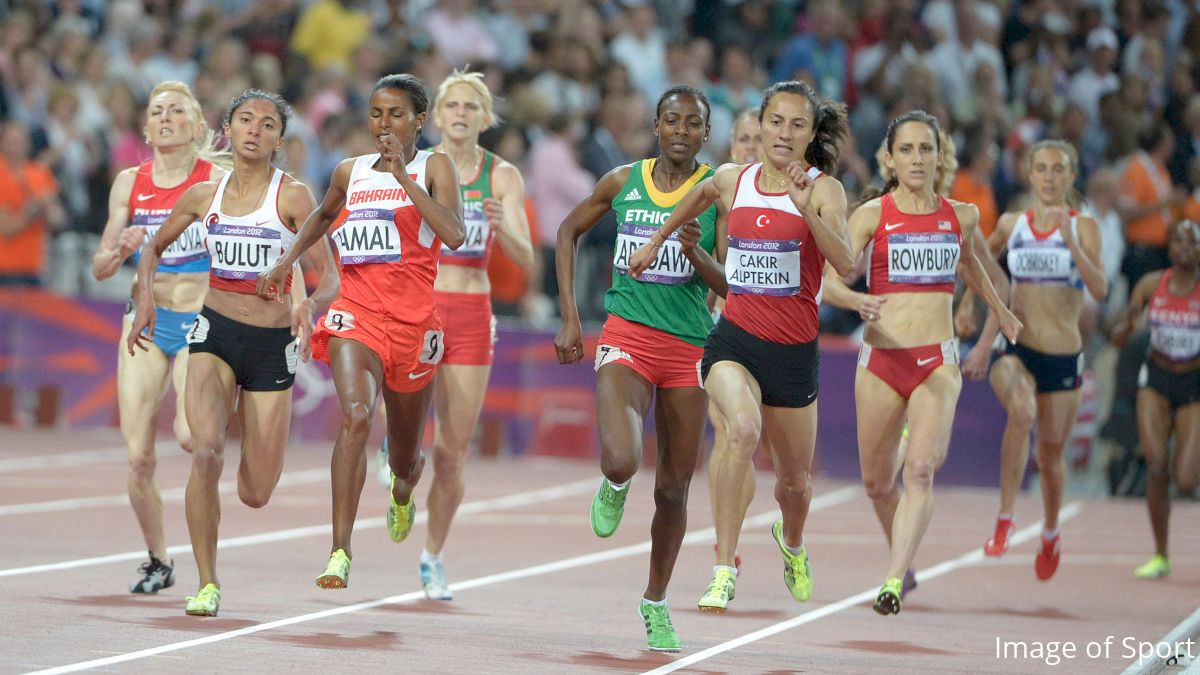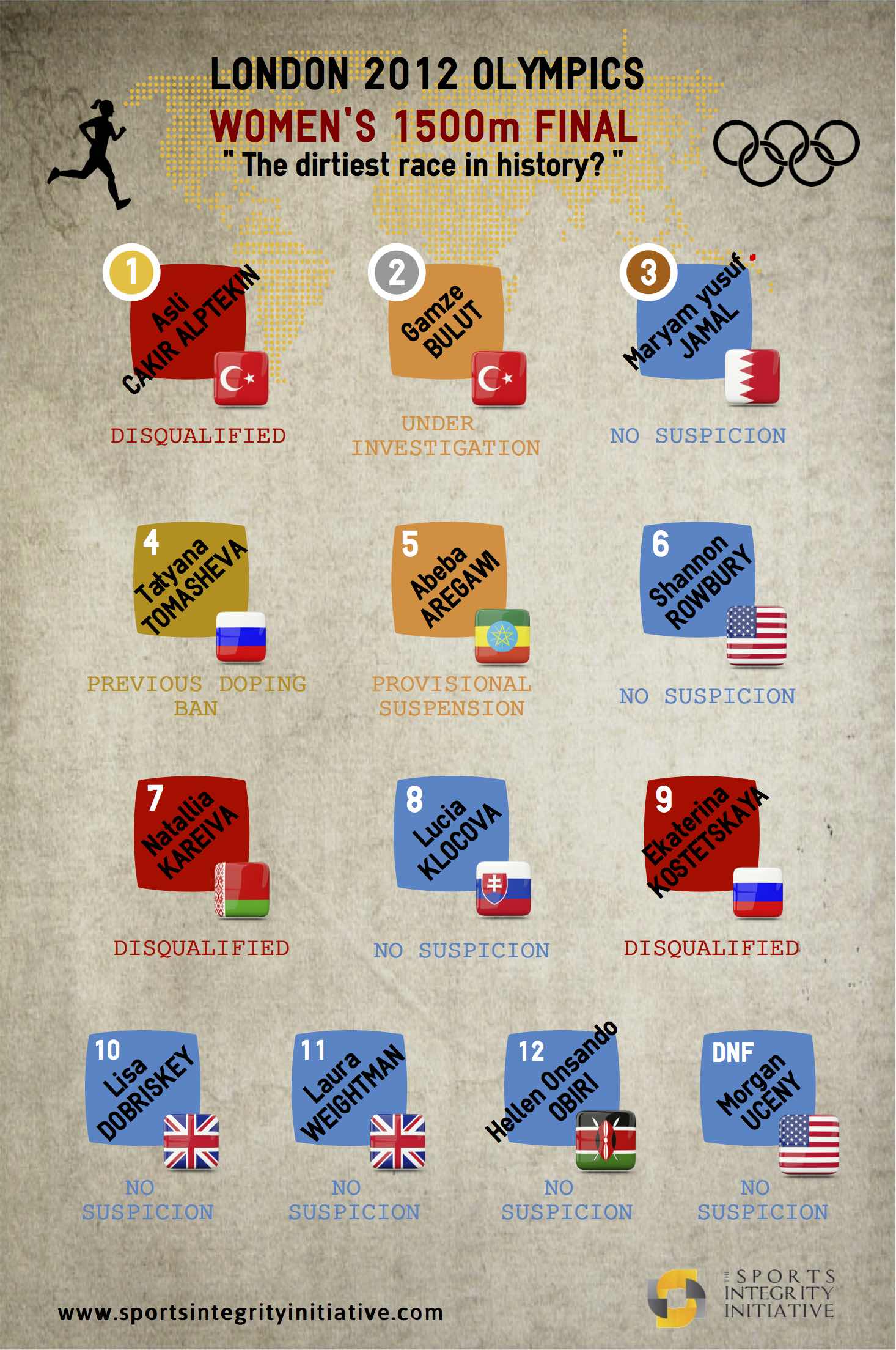Is The 1500m Still The 'Glory Event'?
Is The 1500m Still The 'Glory Event'?
I started running the 1500m out of fascination. My college coach called it “the glory event." He was right. The 1500m is fast, strategic, and captures audie

I started running the 1500m out of fascination.
My college coach called it “the glory event." He was right. The 1500m is fast, strategic, and captures audiences’ imagination. It's nearly four laps where anything can happen.
As a young college runner, I loved watching the greats like Jenny Simpson, Shannon Rowbury, and Morgan Uceny duke it out in a pace that seemed unfathomable for such a distance. I was inspired—and awestruck—at the lethal combination of speed, endurance and often physical nature of the event.
It was a glory event, and I wanted in.
But lately, I am wondering if the 1500m is still that same glory event. The shininess and fascination with the 1500m has been dulled as more and more female middle distance runners are caught using performance enhancing drugs.
I realize that the women’s 1500m is not exclusive to this recent span of drug busts. Heck, Nick Willis got upgraded from bronze to silver just eight months after the 2008 Olympic 1500m final. And Olympic 800m Champion Mariya Savinova is basically the face of the Russian Federation drug bust. But I cannot help but feel that the women’s 1500m in particular is taking a serious hit.
At the World Indoor Championships this past weekend, Brenda Martinez finished fifth overall in the 1500m final. Sifan Hassan won and was followed by the Ethiopian trio of Dawit Seyaum, Gudaf Tsegay, and Axumawit Embaye.
When Martinez finished her race and walked through the media area, she was understandably upset at missing out on the podium. When asked if she felt that she was competing on a level playing field considering the recent drug busts, Martinez said that she didn’t have an answer.
“I try to place as high as I can in any competition, because it can happen any year where someone gets caught and you get promoted," she said. "So I was trying not to let anyone pass me. There were four Ethiopians in front of me so I think it was a good day."
Her statement is depressing. Does this mean she remains hopeful that she would eventually be upgraded to a medal, because “four Ethiopians” were in front of her? If this is the meaning, I cannot help but resign myself to the fact that based on recent history, she is not far off in her suspicion of those who finished ahead of her.
Just two weeks ago, Olympic silver medalist Gamze Bulut tested positive for performance enhancing drugs. She is the most recent athlete who placed in the London Olympic final to test positive. Isabelle Westbury of the Sports Integrity Initiative did a great job of outlining the severity of drug use in that race, even dubbing it more suspicious than the men’s 1988 100m final, widely known as “the dirtiest race in history.”
Of the finishers in the London Olympic final, the winner, Asli Cakir Alptekin, runner-up Bulut, Tatyana Tomasheva (4th), Abeba Aregawi (5th), Natalia Kareiva (7th), and Ekaterina Kostetskaya (9th) have either been disqualified, suspended or are currently under investigation. That’s six athletes in the race of 13 that fell under a doping cloud.
Westbury’s graphic of the women’s 1500m final [below] describes it best.
 Our American record-holder doesn’t even know where she finished in the Olympics.
Our American record-holder doesn’t even know where she finished in the Olympics.
Shannon Rowbury—who on paper finished sixth overall in the race— doesn’t even know what to tell people when they ask how she finished in the Olympic Games.
“Even still, when I’m asked if I was in the Olympics, I tell people ‘yes I was in two. And then they ask how I placed, and I don’t even know what to say,” Rowbury said after Bulut tested positive and she heard the news from a FREAKING TEXT MESSAGE.
As the sport goes through a much-needed cleanse, my hope lies not only in the diligence of the World Anti-Doping Agency, but also in the athletes that believe they can compete with anyone, no matter the circumstances.
Still, depressing as these reports are, I have hope for the “glory event.” The past few months of drug busts, while hard to read, are like stripping off a really sticky band-aid that’s been on the skin for decades.
It hurts, and it is depressing. But in the end, hopefully it is healing the state of track and field.
“I try to put it out of my head because when it comes time to toe the line at the Olympic final, I have to believe that I have just as much of a chance at winning or at least coming home with a medal, just as much as anyone out there.” - Shannon Rowbury
My college coach called it “the glory event." He was right. The 1500m is fast, strategic, and captures audiences’ imagination. It's nearly four laps where anything can happen.
As a young college runner, I loved watching the greats like Jenny Simpson, Shannon Rowbury, and Morgan Uceny duke it out in a pace that seemed unfathomable for such a distance. I was inspired—and awestruck—at the lethal combination of speed, endurance and often physical nature of the event.
It was a glory event, and I wanted in.
But lately, I am wondering if the 1500m is still that same glory event. The shininess and fascination with the 1500m has been dulled as more and more female middle distance runners are caught using performance enhancing drugs.
I realize that the women’s 1500m is not exclusive to this recent span of drug busts. Heck, Nick Willis got upgraded from bronze to silver just eight months after the 2008 Olympic 1500m final. And Olympic 800m Champion Mariya Savinova is basically the face of the Russian Federation drug bust. But I cannot help but feel that the women’s 1500m in particular is taking a serious hit.
At the World Indoor Championships this past weekend, Brenda Martinez finished fifth overall in the 1500m final. Sifan Hassan won and was followed by the Ethiopian trio of Dawit Seyaum, Gudaf Tsegay, and Axumawit Embaye.
When Martinez finished her race and walked through the media area, she was understandably upset at missing out on the podium. When asked if she felt that she was competing on a level playing field considering the recent drug busts, Martinez said that she didn’t have an answer.
“I try to place as high as I can in any competition, because it can happen any year where someone gets caught and you get promoted," she said. "So I was trying not to let anyone pass me. There were four Ethiopians in front of me so I think it was a good day."
Her statement is depressing. Does this mean she remains hopeful that she would eventually be upgraded to a medal, because “four Ethiopians” were in front of her? If this is the meaning, I cannot help but resign myself to the fact that based on recent history, she is not far off in her suspicion of those who finished ahead of her.
Just two weeks ago, Olympic silver medalist Gamze Bulut tested positive for performance enhancing drugs. She is the most recent athlete who placed in the London Olympic final to test positive. Isabelle Westbury of the Sports Integrity Initiative did a great job of outlining the severity of drug use in that race, even dubbing it more suspicious than the men’s 1988 100m final, widely known as “the dirtiest race in history.”
Of the finishers in the London Olympic final, the winner, Asli Cakir Alptekin, runner-up Bulut, Tatyana Tomasheva (4th), Abeba Aregawi (5th), Natalia Kareiva (7th), and Ekaterina Kostetskaya (9th) have either been disqualified, suspended or are currently under investigation. That’s six athletes in the race of 13 that fell under a doping cloud.
Westbury’s graphic of the women’s 1500m final [below] describes it best.
 Our American record-holder doesn’t even know where she finished in the Olympics.
Our American record-holder doesn’t even know where she finished in the Olympics. Shannon Rowbury—who on paper finished sixth overall in the race— doesn’t even know what to tell people when they ask how she finished in the Olympic Games.
“Even still, when I’m asked if I was in the Olympics, I tell people ‘yes I was in two. And then they ask how I placed, and I don’t even know what to say,” Rowbury said after Bulut tested positive and she heard the news from a FREAKING TEXT MESSAGE.
As the sport goes through a much-needed cleanse, my hope lies not only in the diligence of the World Anti-Doping Agency, but also in the athletes that believe they can compete with anyone, no matter the circumstances.
Still, depressing as these reports are, I have hope for the “glory event.” The past few months of drug busts, while hard to read, are like stripping off a really sticky band-aid that’s been on the skin for decades.
It hurts, and it is depressing. But in the end, hopefully it is healing the state of track and field.
“I try to put it out of my head because when it comes time to toe the line at the Olympic final, I have to believe that I have just as much of a chance at winning or at least coming home with a medal, just as much as anyone out there.” - Shannon Rowbury